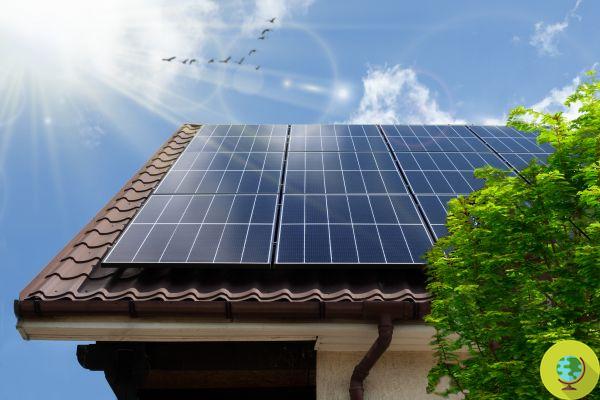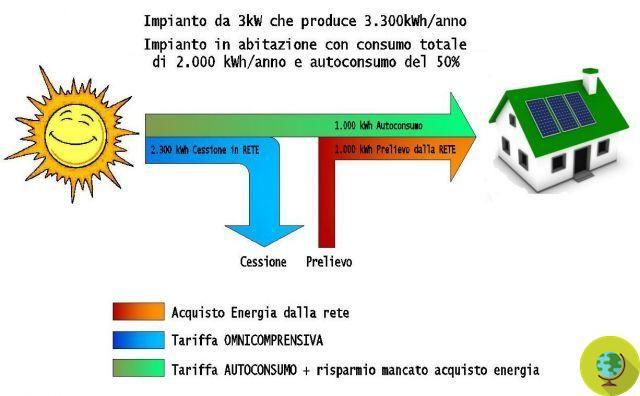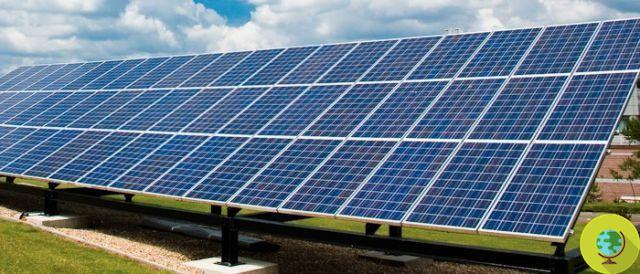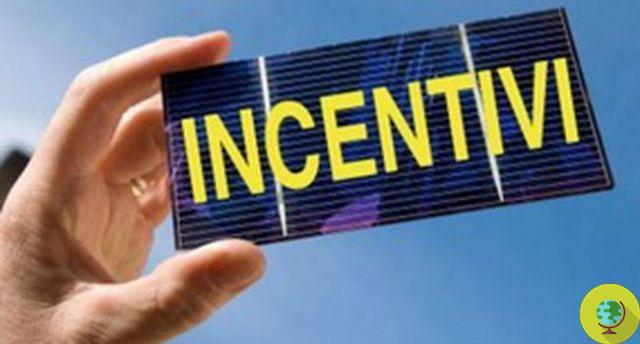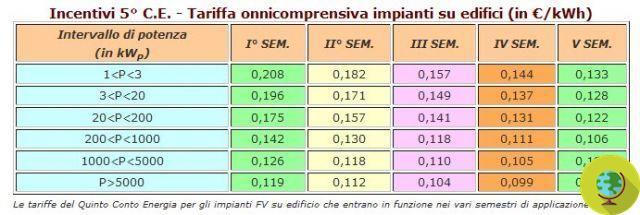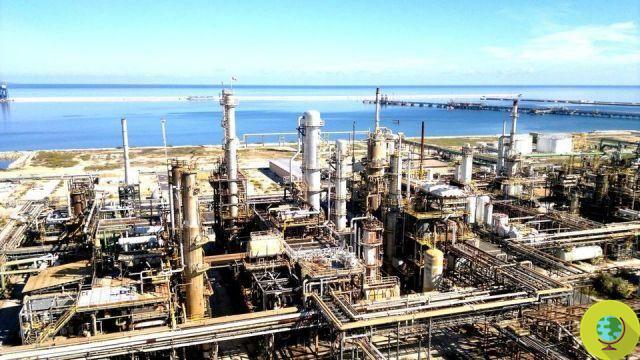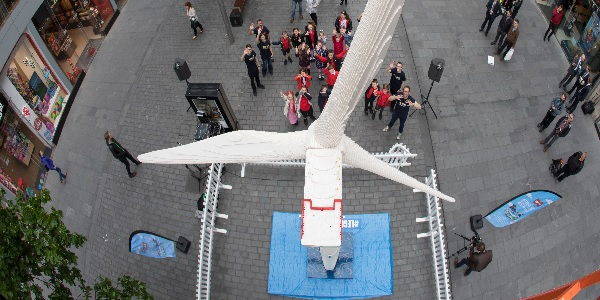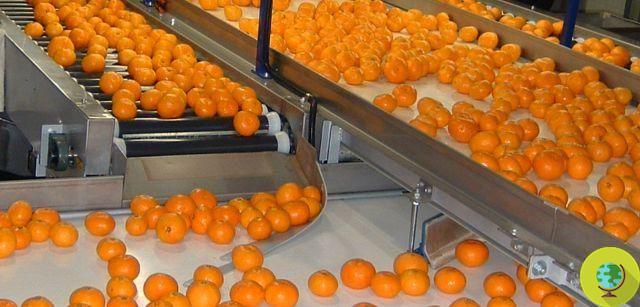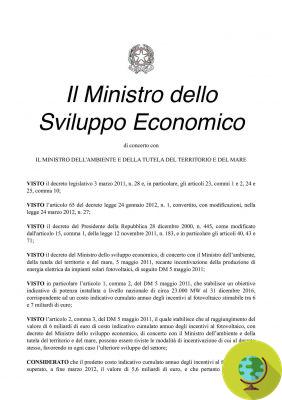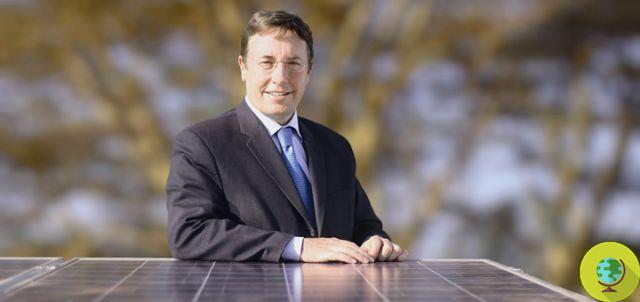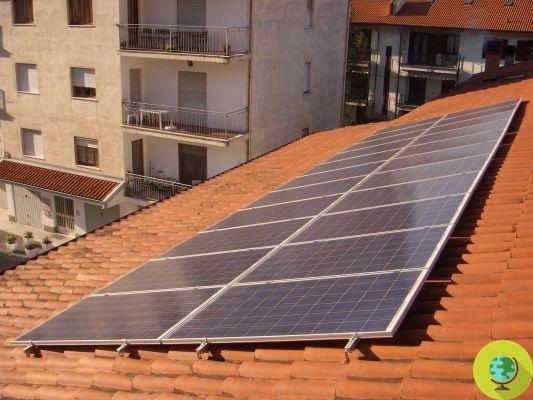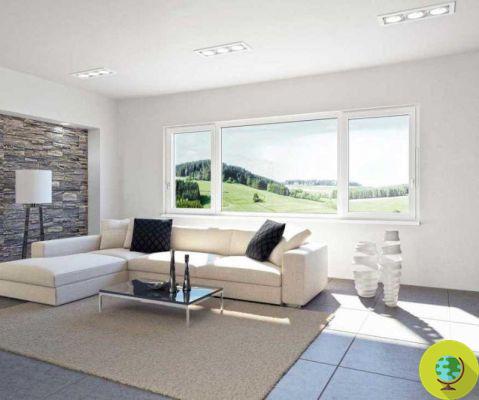
Now it's official: the tax deduction of 55% for energy saving and energy redevelopment of buildings has also been confirmed for the whole of 2011. After the go-ahead in the Chamber of Deputies, in fact, also the Senate of the Republic, at the approval stage of the Stability Law (formerly the Finance Act) containing intervention measures for a total of € 5,7 billion, it ruled favorably (161 yes, 127 no and 5 abstentions) on the same text approved in the Chamber, without making further changes.
He is about to end up run over, his mother saves him
Now it's official: the tax deduction of 55% for energy saving and energy redevelopment of buildings has been also confirmed throughout 2011. After the green light in the Chamber of Deputiesi, in fact, even the Senate of the Republic, in the approval of the Stability Law (formerly the Finance Act) containing intervention measures for a total of € 5,7 billion, pronounced favorably (161 yes, 127 no and 5 abstentions) on the same text approved by the Chamber, without making further changes.
There will therefore be no need for further steps in Parliament and the the provision will come into force after the ordinary period of “vacatio legis".
Some criticism on the point, to tell the truth, was not lacking on the part of some representatives of the opposition, according to whom there would have been theopportunity to also discuss proposed amendments and changes, not only in the matter of tax deductions but, in general, also on other points of the Stability Law. According to the opposition, in fact, the Government has preferred not to go further for to arrive freer at the vote of confidence on December 14th omitting, however, some changes that could have contributed to making our country "greener and more sustainable": for example, greater support was proposed for sustainable mobility choices, in particular in the public transport sector, but also greater support for areas affected by natural disasters. On the tax deductions, then, one proposed three-year extension, instead of just one year, as established with the vote of 7 December.
Three years, in fact, would be a period of time more suited to the needs of companies, which can better calculate and plan their investments, especially if we take into account the fact that tax deductions of 55% have created in recent years a real induced of "green jobs" connected to the works of energy improvement and renovations, a branch of the green economy particularly valuable in times of economic crisis. And in fact the Honorable Realacci had not failed to highlight this aspect, polemically putting it in opposition to the effects, considered to have a much lower political and economic impact, of the House Plan of the Berlusconi government.
We must not forget, in fact, that in addition to environmental and economic reasons, one always tries to defend the actions of one's own political party as well. The tax deductions 55%in fact, they are one of the legacies of the Prodi government, reworked several times with subsequent modifications to date. Moreover, we must not forget also the weight, in terms of lower tax revenue, which the system of deductions will entail for the state coffers, albeit partially offset by one emergence of the submerged (higher number of invoices, therefore higher VAT revenue) and a increase in productivity linked to the economic induced. In the same technical report for the approval of the Stability Law, in fact, it is stated that the tax authorities will collect about 300 million more in taxes, deriving from the work "induced" by the deduction: VAT, Irpef, but also Ires and Irap which would not have been paid without the extension of the bonus for this year.
But what worries the government is one decrease in revenue in the short term, when the effects of the lower tax revenues due to the deductions will be felt. In fact, the mechanism provides that those who implement certain interventions for the energy requalification of buildings can "deduct" part of the expenses incurred from their tax return: in other words, pay a little less taxes to the State. That's why in recent years the so-called "Tax bonus" of 55% it has been modified several times. Above all it was tried to modify the period in which it is possible to "spread" the expenses incurred and to be deducted. With this last modification, in fact, the period for deducting expenses is 10 years, during which citizens can, with subsequent tax returns, deduct expenses in ten equal installments, similarly to what already happens with the deductions of 36% for building renovations, without providing for particular exemptions or exceptions for older taxpayers, as envisaged for 36%.
Some companies and members of the Democratic Party (including the aforementioned Realacci) have criticized the temporal change above, arguing that pass from five to ten annual installments of the same amount may decrease the "appeal" of the deduction mechanism, thus also reducing the benefits for the environment and economy.
In reality, it is not easy to establish whether the deduction is better in five or ten years. In all probability, those with higher incomes might find it more convenient to deduct an expense installment with a higher amount, therefore greater if the same expense is divided into five installments instead of ten. Conversely, those with lower incomes might find it more convenient to divide them over ten years. As claimed by the business newspaper "The Sun 24 hours“, In fact,“ with inflation as low as the current one ”, the breakdown over ten years“ should lead to an acceptable loss for taxpayers: a few percentage points of the total amount, in terms of purchasing power “. Even those who have In addition, significant tax credits may find it cheaper to defer payments, given that in the mechanism of deductions the moment in which the expenses are incurred assumes importance, therefore the moment in which the bank transfer was made, for individuals and self-employed workers, unlike the companies, for which the accounting principle is in force of the competence, and you have to look at the moment in which the delivery or shipment takes place (for the purchase of goods) or the moment in which the performance is actually completed, for example in procurement contracts.
With the exception of the temporal division, therefore, there was no other change in the fundamental framework of the rules on the 55% deduction. The procedures of access to benefits, in fact, remain the same, as well as the types of expenditure for which the deduction is allowed, with the respective spending limits. For example, € 100 for the overall redevelopment of the building, with improvement and reduction of energy needs, or € 60 for the installation of solar panels for the production of domestic hot water or, again, 30 thousand euros for the replacement of an old boiler with a new one with condensation or with low enthalpy geothermal systems.
A very important novelty, however, concerns the the very future of the deduction mechanism. Given the incessant requests from exponents of the production chain, in fact, the Government announced that the deduction mechanism, which has just been extended, could be fully operational and, therefore, become stable, even inserted in the Consolidated Act on Income Taxes. Stabilization could already take place, in fact, with the "traditional" Milleproroghe decree at the end of the year. We hope so, for the environment, and for a green economy, more respectful of the latter.
Andrea Marchetti
Read all our articles on the 55% tax deduction





